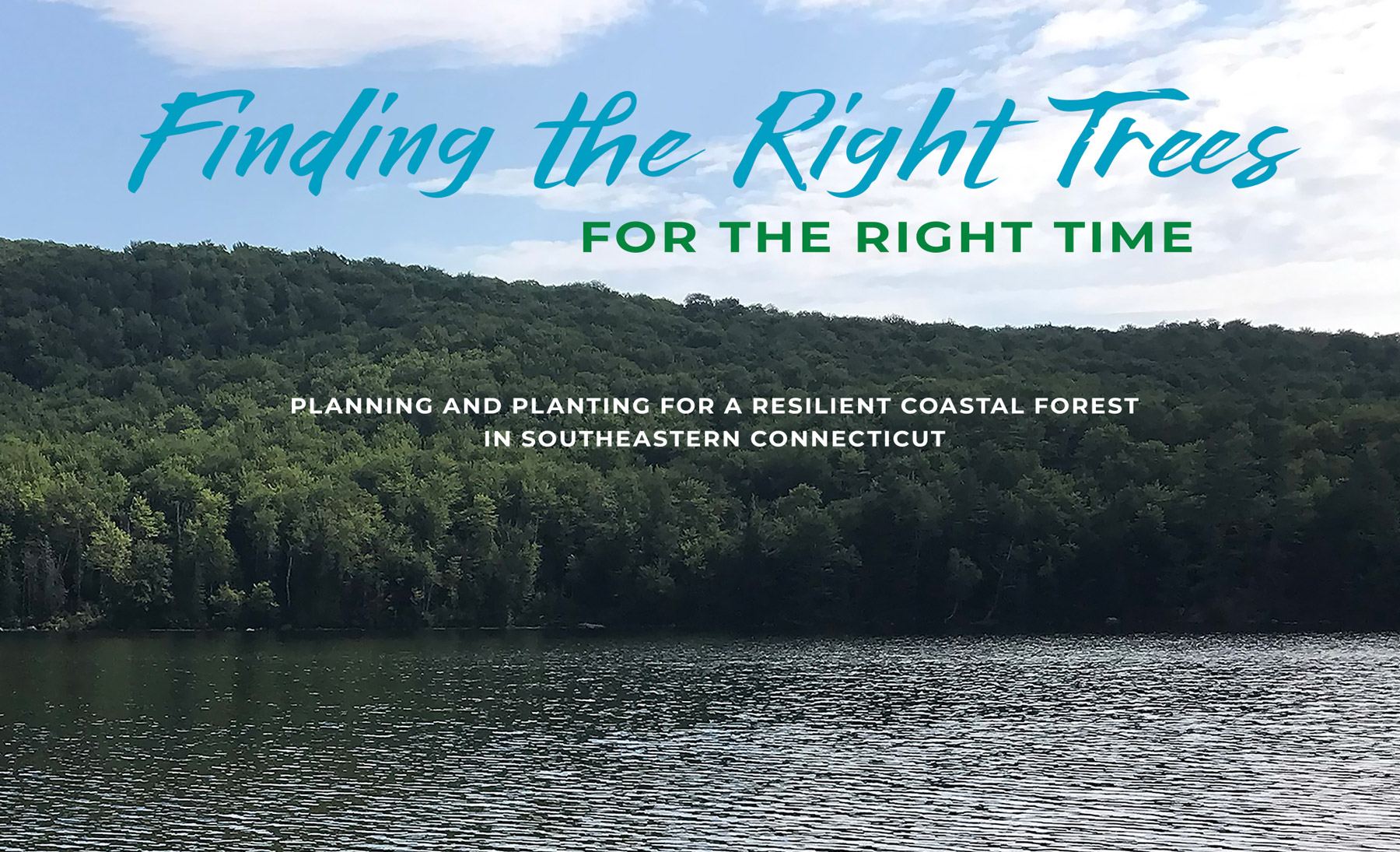The right trees for the right time: speakers to focus on forest resiliency amid climate change
 New approaches to forest management that can help maximize ecosystem resiliency in changing climate conditions will be the focus of four talks being offered in conjunction with a recently announced project in the Hoffman Evergreen Preserve in Stonington.
New approaches to forest management that can help maximize ecosystem resiliency in changing climate conditions will be the focus of four talks being offered in conjunction with a recently announced project in the Hoffman Evergreen Preserve in Stonington.
The talks will be offered virtually on March 10, April 14, May 12, and June 9. Registration is free.
Sponsored by the Avalonia Land Conservancy, Connecticut Sea Grant and UConn CLEAR (Center for Land Use Education & Research), the talks will give municipal officials, resource managers, land trust members, tribal leaders, private forest owners, students, teachers and others the chance to learn from experts about climate change effects on northeastern forests and strategies to enhance their ability to adapt.
“New England has beautiful, forested land, much of it stewarded by land conservancies and landowners,” said Sharon Lynch, the project’s outreach coordinator. “But due to current and projected environmental stressors on our forests — increasing insect pests, drought, and storms — forest stewards and everyday people will need to know more about how to keep our forests healthy and resilient.”
The series is being offered as CT Sea Grant and Avalonia, which owns the Hoffman preserve, is embarking on a project to develop a management plan for the 200-acre forest that incorporates climate change projections and assisted migration techniques for plants suited to future conditions. Funded by a $57,144 Long Island Sound Futures Fund grant, the project will also include the planting of various types of seeds and seedlings, with the overall goal of transforming the site into a living lab and demonstration site for forest adaptation.
Each of the talks in the series will take place at 1 p.m. on the second Tuesday or Wednesday of the month:
- March 10, “History of New England Forests and Climate Change,” led by led by Maria Janowiak, researcher and deputy director of the Northern Institute of Applied Climate Science, part of the USDA Forest Service. This program will cover the dilemma facing land stewards in coastal New England in how to preserve native species and natural habitats in ways that are innovative but aligned with the values of informed stewardship.
- April 14, “Carbon Sequestration 101,” will be presented by Dr. Todd Ontl, PhD, a research scientist and climate adaptation specialist for the Northern Institute of Applied Climate Science and Michigan Tech University. This program will address how carbon moves into and out of coastal forests, and how carbon cycles and carbon sequestration are fundamental to understanding forest stewardship.
- May 12, “Experimenting with Climate-Adaptive Forestry Practices: Challenges and Opportunities,” led by Christopher Riely, a conservationist and licensed forester who works on projects in southern New England through his company, Sweet Birch Consulting LLC. After giving a brief overview of climate adaptation strategies for forests, he will focus on an experimental project he worked on at a 13,000-acre reservoir property in Scituate, R.I. Site work included planting both native and non-native tree seedlings, monitoring results and providing public education about the project.
- June 9, “Brave New Worlds for Trees: Assisted Migration and the Study of the Hoffman Preserve,” led by Juliana Barrett, extension educator and coastal habitat specialist with CT Sea Grant and UConn Extension. Principle investigator for the grant that funded the Hoffman project and speaker series, Barrett will describe the history of the preserve and climate projections through 2050. She will present a progress report on the selection of trees and shrubs that may be best suited to withstand changing climate conditions and discuss assisted migration techniques that can enhance forest resilience. Her presentation will also include a community tree planting component and information about how to select and nurture the right tree for the right spot at the right time.
“Avalonia is excited to partner with Connecticut Sea Grant to engage a wide range of community members in discussion and enhance understanding of climate change and its effects on coastal forests the northeastern U.S.,” said Kimberly Barber-Bradley, Avalonia’s board president. “Climate change is occurring at a faster pace than traditional stewardship methods allow, and these talks will open up new research-based ways of thinking about forest management and its relationship to Long Island Sound.”
Registration for each of the webinars will be available individually. To register, visit: https://clear.uconn.edu/webinars/schedule.htm.
For more information: Sharon Lynch, slynch@gwu.edu
